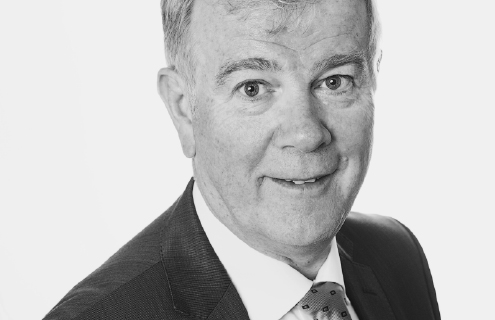SuMi TRUST has had a busy summer of mandates. What were the key drivers for new business, and where were the funds established?
New business mandates resulted from a number of different areas. Firstly, from the Sumitomo Mitsui Trust Bank (SMTB) group and their affiliated clients establishing new Cayman products, but also from existing clients building out new Cayman Islands or Ireland-regulated funds, and UCITS using our Irish platforms. We also saw business from new fund launches, and from managers concerned about the ongoing service quality, commitment and balance sheet strength of their existing providers.
We are also securing new depositary mandates for Irish and international alternative investment fund managers, given the financial strength and fiduciary expertise of SMTB. The key drivers are our proven service quality developed for the very demanding Japanese clients, speed of response and very strong networking, focused on creating a partnership environment and tailored solutions for clients.
How have the demands of the financial services industry changed in the last five years?
The market is continuously changing, with the introduction of additional regulatory and reporting demands from the EU and US affecting both asset managers and the fund servicing industry. In addition, investors are always looking for greater transparency and timely accurate reporting to support investment decisions. Due diligence has become ever more thorough and demanding, with investors looking to source more independent data and information flows direct from the service providers, rather than through the asset managers as historically was the case.
Also, corporate governance and anti-money laundering (AML) requirements continue to place further pressure and demands on servicing. All of this requires ongoing technology investment and specialist human resources.
Have you seen a change in the requirements and demands of asset managers and fund promoters? How have you developed services in line with this?
Asset managers are increasingly dependent on their servicing partners as they look to focus their energies on core portfolio management and investor relations. With the arrival of enhanced regulations and reporting, they are increasingly looking to outsource operations and other functions and to identify servicing partners to support this. Fund promoters are also absorbing all of the new distribution rules, and the increasing pressure to bring the industry onshore and identify the optimum distribution strategies and products.
We have created Alternative Investment Fund Managers Directive (AIFMD) and UCITS solutions, enhanced risk reporting, middle office, FX currency share class hedging, and increasingly detailed portfolio reporting.
How should the fund servicing industry be adapting to handle the requirements of AIFMD? How will services differ from UCITS?
From the depository perspective, the AIFMD requirements have been broken into three key areas: cash flow monitoring; safekeeping of alternative investment funds’ assets; and oversight obligations.
Safekeeping of assets and oversight are already required for UCITS. However, there is a distinction under AIFMD between ‘assets in custody’ and those categorised as ‘other assets’, that is, not in custody. For loss of assets in custody, the depository is subject to a higher standard of liability, which is close to strict liability and needs to support this.
The cash flow monitoring requirement is new, and has had a significant impact. Depositories take on the full overview of all fund cash accounts on a daily basis, reconcile the various cash flows, and monitor for significant and inconsistent fund movements.
AIFMD also has specific requirements for asset segregation, which are becoming standard in Europe but pose greater challenges for US prime brokers who adopt a different model. From the perspective of fund administration, AIFMD has created a new regulatory reporting requirement under Annex IV, and investment managers will usually look to their administrator to support this.
UCITS V will also introduce further depository liabilities as regulators attempt to synchronise the two regulatory regimes. A key requirement will therefore be balance sheet strength and adequate capital ratios to be able to manage the increased risk for the depositary and to provide investors with the appropriate level of financial comfort.
What will fund services look like for clients from further afield, for example, those entering the market from Asia?
Asian managers looking to raise assets in Europe and other markets will increasingly look to the UCITS brand, which is now recognised in more than 70 countries. They will also look for a respected Asian brand. Given SuMi TRUST’s experience in Asia, and its operational model of delivering accurate daily net asset values, plus the balance sheet and corporate strength, we believe we are well positioned to support Asian managers.
← Previous interview
Actuare
Charles Kilkenny
Next interview →
Confluence
Nicola Le Brocq
 Image: Shutterstock
Image: Shutterstock 